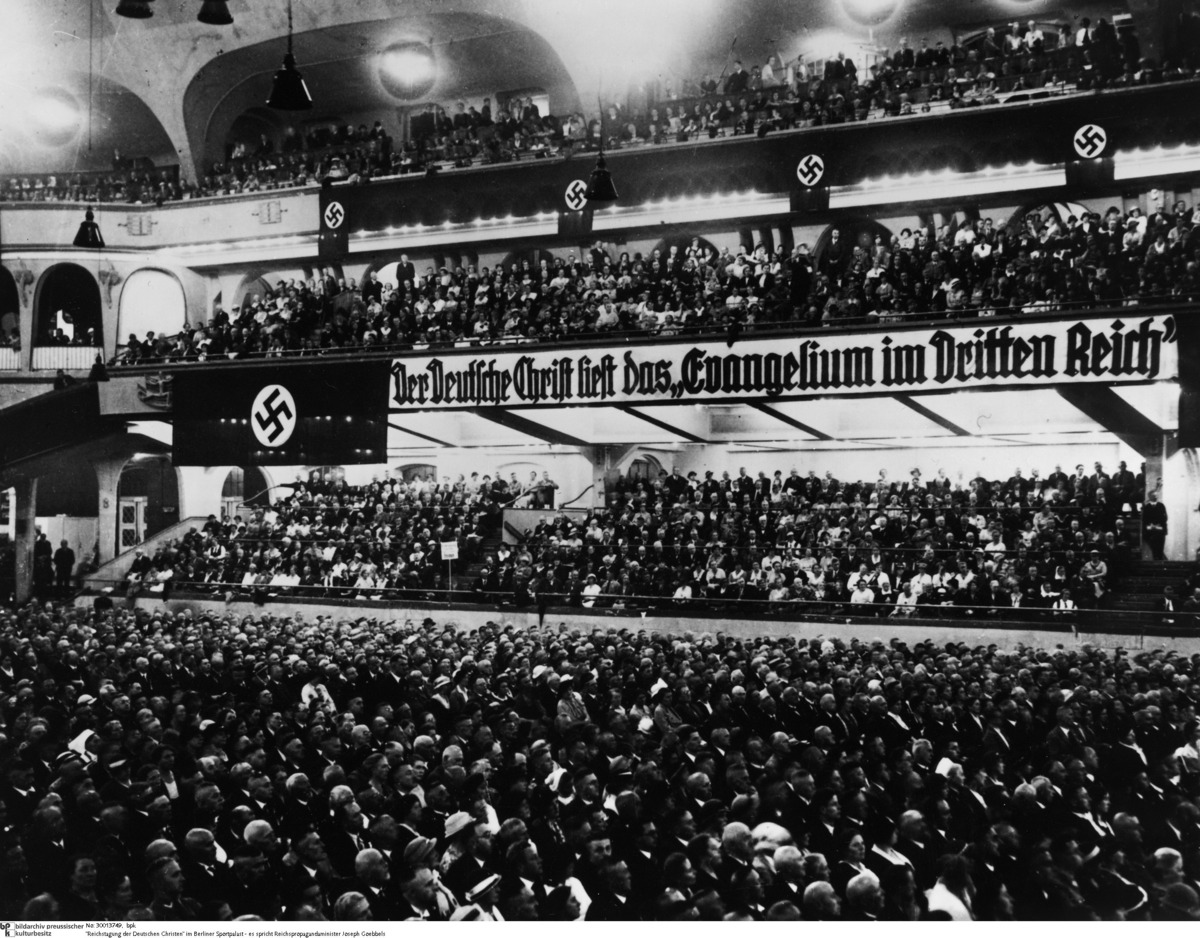Abstract
In 1932, the German Christian movement
[Glaubensbewegung Deutsche Christen]
established itself as an important National Socialist splinter group
within the Protestant Church. It was organized in strict accordance with
the “Führer principle” and promoted the synthesis of racial and
ecclesiastical doctrines. Among other things, German Christians demanded
racial purity within the church and the “Entjudung” [“de-Judification”]
of religion through the abolition of the Old Testament. After Hitler
became Chancellor, the movement’s membership greatly increased. It won
the church elections for the new, unified German Protestant Church
[Deutsche Evangelische Kirche (DEK)
or Reich Church] on July 23, 1933,
occupied the new church’s most important ecclesiastical offices, and
tried to bring the church into doctrinal and institutional alignment
with Nazi ideology [Gleichschaltung].
Sermons, for example, were supposed to emphasize the theological
foundations of racial theories and the allegedly “Nordic” character of
Christ. Churches were decorated with swastikas, and a series of new
symbols and rituals aimed to demonstrate the unity between the church
and the Nazi state. When the German Christians introduced rules
restricting church offices to Aryans, a group of Protestant theologians
and clergymen centered around around Pastor Martin Niemöller protested
by founding the Pastors’ Emergency League, out of which the “Confessing
Church” [Bekennende Kirche]
developed. This internal protest movement challenged the competence and
legitimacy of the Reich Church and the German Christians, and declared
itself the only legitimate Protestant Church. Thus, instead of creating
uniformity and unity, the German Christians actually divided the church
more than ever before and steadily lost influence in the following
years. Total state control and “coordination” of the Protestant Church
would never be achieved.
The photograph shows a conference of German Christians in the Berlin
Sportpalast on November 13, 1933. The
banner in the background states: “The German Christian reads ‘The Gospel
in the Third Reich,’” a reference to the official German Christian
newspaper.
